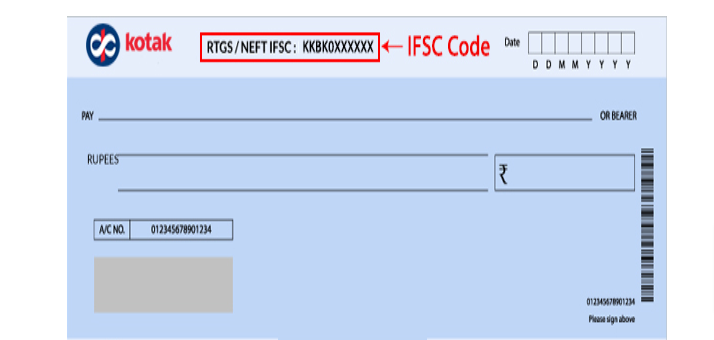Select Your Bank, City, Branch
Bank Information Lookup
Bank Details
| ID | |
| Bank Name | |
| State | |
| City | |
| Branch | |
| IFSC | |
| Address | |
| STD Code | |
| Phone |
Select Your IFSC Code
What is IFSC ?
IFSC (Indian Financial System Code) is a unique 11-digit code assigned to each bank branch in India. It helps identify and differentiate between various branches of the same bank, enabling efficient and accurate transactions. The code is essential for electronic fund transfers, NEFT, RTGS, and other financial transactions. It ensures that funds are transferred to the correct account and reduces the chances of errors or fraud. IFSC is also identification of a particular Bank Branch. It is allotted by Reserve Bank of India.

NEFT Timings to Transfer Funds-
One of the simplest methods for transferring money between bank branches and online internet banking is the National Electronic Funds Transfer (NEFT). For the convenience of banks and customers, RBI is constantly revising the fees, restrictions, and timings. As of December 16, 2019, NEFT transactions would be processed around-the-clock, according to the most recent update from the RBI.
What are the NEFT Fees?
With effect from July 1st, 2019, the Reserve Bank of India has eliminated all RTGS, NEFT, and time-varying fees imposed on banks. Although banks may still charge customers for NEFT and RTGS transactions. Depending on the amount of money being transferred by NEFT, it can be a variable sum.
RBI Batches and NEFT Timings
All requests for NEFT payments will be handled in batches.
RBI’s most recent information on NEFT and RTGS transfer times
Starting on December 1, 2020, RTGS will be accessible 24 hours a day. RTGS, which is used for large transactions and is similar to IMPS and NEFT, could happen at any moment.
NEFT Transfer FAQ
Describe NEFT.
A nationwide payment system for online and offline money transfers is called National Electronic Funds Transfer, or NEFT. To transfer money from one account to another, it makes advantage of the NEFT Batch timings.
NEFT Limit: What Is It?
Although the RBI has not imposed any minimum or maximum limits on NEFT transactions, your bank may have done so. For further information about NEFT restrictions, you can speak with your bank.
Is NEFT required to have an IFSC Code?
Yes, the IFSC Code is required to start a fund transfer. This makes the financial transfer quicker and error-free by allowing the sending bank to find the receiving bank branch.
What happens if my NEFT payment is postponed or cancelled?
You can contact your bank to get an update on the issue if your payment was delayed or cancelled. Customer Facilitation Centres, or CFCs, are available at banks to resolve NEFT fund transfer issues. The RBI List contains the CFC Contact Information.
What if the bank delays returning the cash because the Fund Transfer was cancelled?
The bank must pay the client penalty interest at the current RBI LAF Repo Rate plus 2% for the period of delay/until the date of refund if the NEFT Transaction is not returned within the RBI-allowed time frame.
What information is necessary for transferring funds?
The Beneficiary or the Receiver, the Remitter or the Sender Banks, and the Details of the Beneficiary, which are the Beneficiary Name, Account Number, and Account Type, as well a